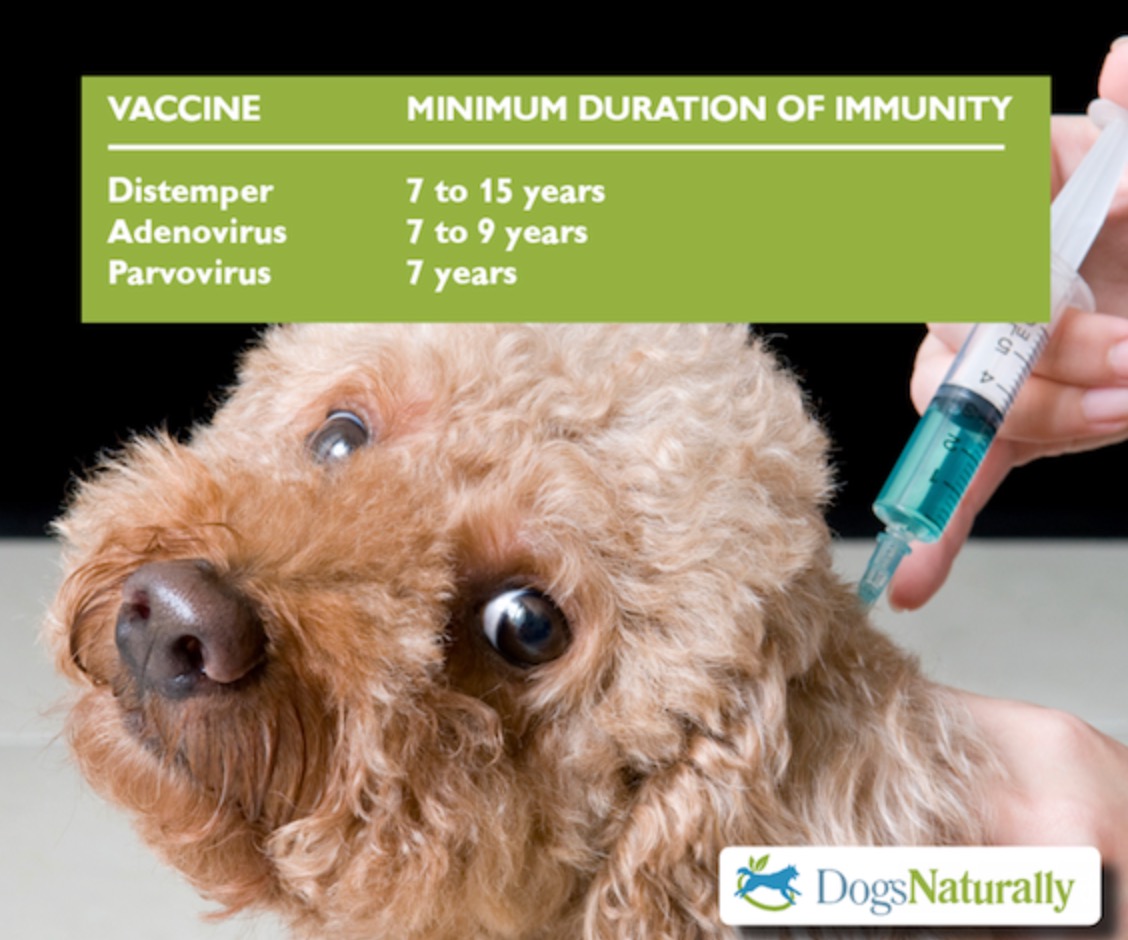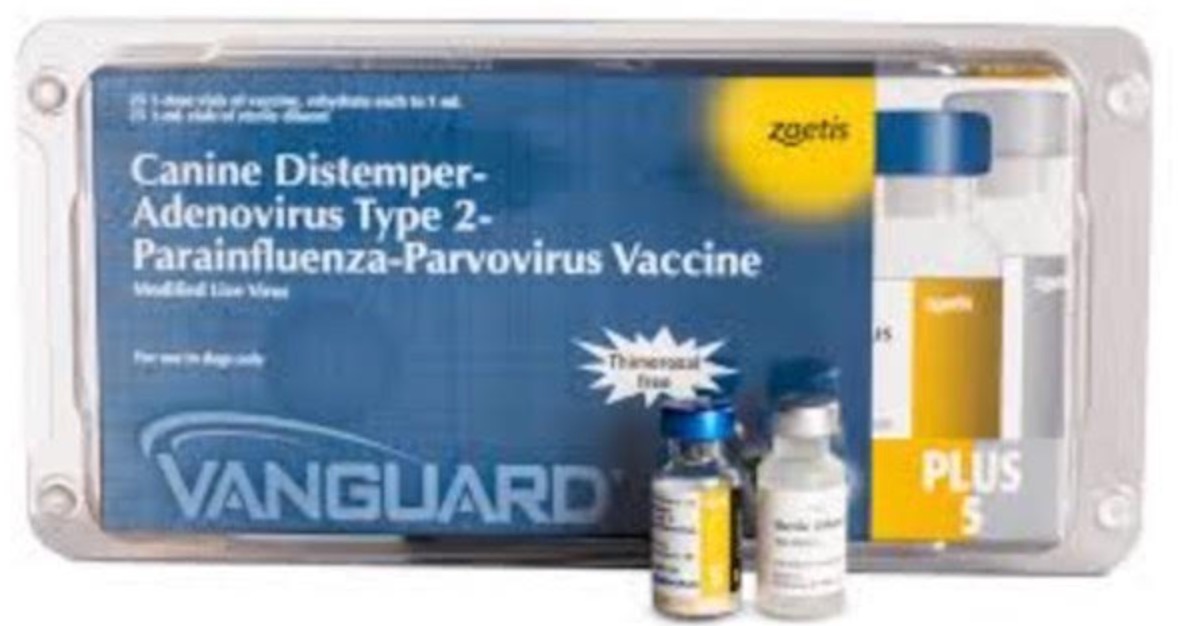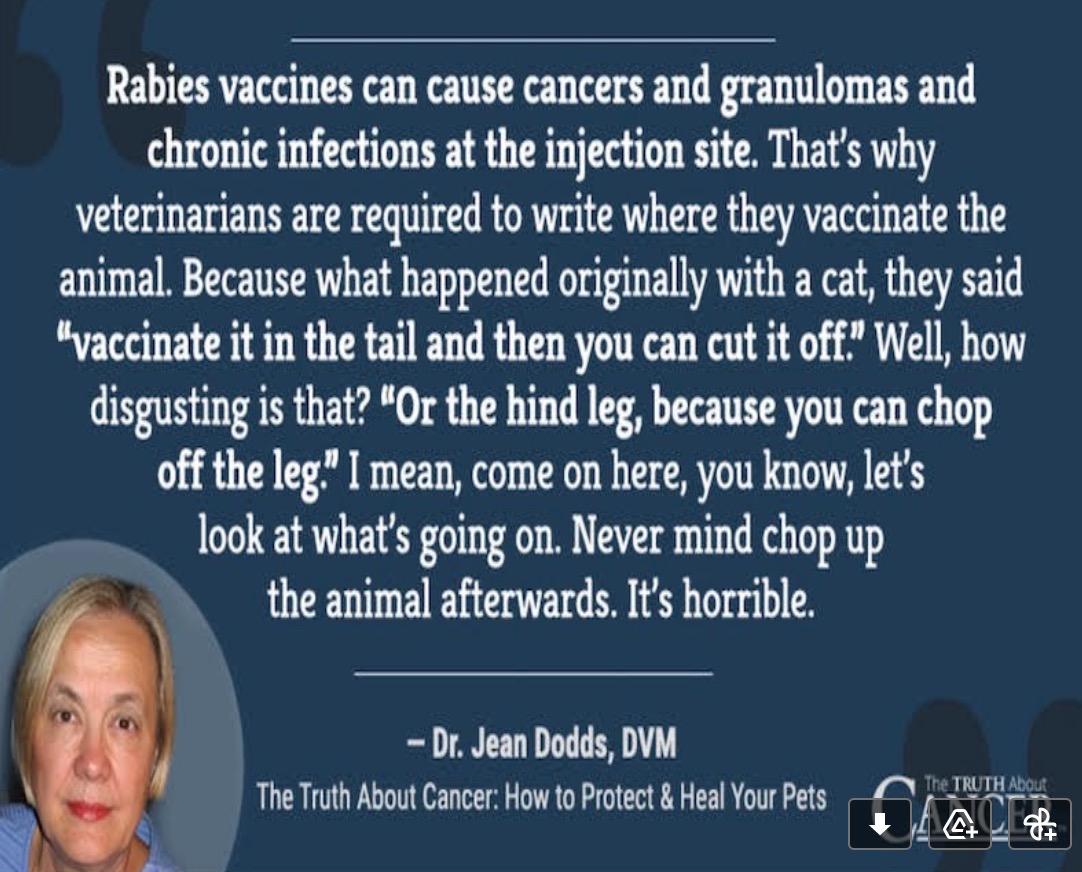Vaccination Information

!!! Seizures are also caused by Vaccines and or Flea/tick poison reactions !!!
Don’t blame the breeder, blame the Vet !$$
To date we believe Dogs need initial series of vaccines, in order for them to have antibodies for diseases (aka ability to fight diseases, protection from diseases).
When and how often, to vaccinate, is the big debate and Dr. Schultz and Dr. Dodds (PLEASE READ !!!) are sharing their clinical findings, and the world, is starting to listen, for the health of our pets.
What is also 100% known, is that no dog, needs yearly vaccines.

Our pups go home with “MATERNAL ANTIBODIES” (no vaccination). Your puppy comes with maternal antibodies, that will provide puppy with protection/immunity, for Distemper, Adenovirus Type 2, Parainfluenza, Parvo until puppy is 16 weeks of age minimally (most often longer)
The best and most effective method is to titer test a pup, who has not yet been vaccinated. If the test shows that sufficient maternally derived antibodies are still present, vaccination is pointless, as the antibodies will neutralize the vaccine.
Keep in mind that ANY Positive results (even if less than ideal number) means that puppy HAS Immunity. However feel free to “challenge” this, by doing a Titer on your puppy, checking for Antibodies !!
When we first heard about passive immunity, we immediately decided to tire, instead of vaccinating to challenge, and test this, and were very pleased to find out, our pups had desired protection.

PUPPIES I KEEP receive their first and only vaccination at 16 weeks of age. My first Puppy Vaccine at 16 weeks of age, will consist of the following at most: Distemper, Adenovirus Type 2, Parainfluenza, Parvo (MLV). I Repeat in 12 months time, and then Titer every 3-4 years.
NEVER EVER – LEPTO, CORONA, FLU, LYME, OR BORDETELLA (kennel cough) or your puppy could seizure, have GI issues, brain swelling, or die.
Use common sense and avoid dog parks, public lawns and contact with foreign feces (poop)
Always stay with your pet so you can supervise, control, what they are doing.
NEVER let them take your pet “to the back” for blood work or vaccines. If they refuse to have you there, with your pet, LEAVE and find a better Vet.
We have had pups receive the wrong vaccine, and even vaccinated twice in one visit and have a seizure !!! There has been numerous reports, of pups beaten and or injured.
Always visit the Vet Mon-Thursday in the morning so that should puppy have any reactions, the Vet will still be open.
We also encourage you to space out the Rabies and any other vaccines you get.
Preventative and or Treatment for Vaccinosis symptoms (dogs adverse reaction to vaccines): Silica, Thuja (you can give as a preventative prior to receiving vaccines)
VACCINATION FACTS
Your puppy is said to have protection 36 hours after receiving Vaccination (if vaccination was needed). Your puppy could “shed” antigen or be contagious 3-10 after receiving a vaccination.
Maternal antibodies (protection from common canine diseases) should last at least until 16 weeks of puppy age
RABIES
LEGALLY in most of North America, you are only obligated to vaccinate for Rabies every 3 years as of 2017 (soon to be changed to every 7 years)
THE REST IS UP TO YOU, NOT YOUR VET
Rabies contains mercury (Thimerosal is a mercury-based preservative). YES even the vaccine that says it is mercury free because mercury wasn’t added directly to the vaccine, but used in production the vaccine manufacturers can claim the vaccine is thimerosal-free.
Rabies vaccine is dosed for the size of an 80 lbs dog – so we want you to wait until puppy is their adult weight before you give them a Rabies vaccine, so less of a chance of them overdosing.
NEVER BEFORE 6 MONTHS OF AGE, at least I would prefer people to wait until 12 months of age, if this is possible.
2022 BEWARE of allergy medication: Cytopoint or Apoquel has caused a lot of pet deaths


Taking The Risk Out Of Puppy Shots
You know this, right?
For most dog owners, it’s not news that yearly boosters – or any boosters really – are at best unnecessary and, at worst, harmful.
You know that reducing the number of vaccines is critical to your dog’s health, but when it comes to puppy shots, we’re still over-vaccinating.
And we’re doing it at a critical time in your dog’s life.
Let me explain …
Why Routine Puppy Shots Shouldn’t Be Routine
As we know, puppies are given a series of several vaccinations, spaced two to four weeks apart. This is pretty standard practice … and we’ve come to believe that a series of puppy shots is necessary for them to be protected. But this simply isn’t true. It takes only one vaccine for a puppy to be protected.
Get More Info Here:
So if you wish 3 vaccines:
9 weeks of age: Distemper, Adenovirus Type 2, Parainfluenza, Parvo (MLV)
12 weeks of age:Distemper, Adenovirus Type 2, Parainfluenza, Parvo (MLV)
16 weeks of age: Distemper, Adenovirus Type 2, Parainfluenza, Parvo (MLV)
NEVER EVER LEPTO, CORONA, LYME, BORDETELLA (kennel cough) is a useless exposure to put your puppy through but I do know that many day care and boarding facilities require this.
Maternal Antibodies
When puppies are very young, they’re protected from disease by drinking their mother’s first milk, called colostrum. This rich milk contains antibodies against disease (called maternal antibodies), which the mother passes down to her puppies. The puppy’s immune system isn’t fully mature, and able to fully protect him, until your puppy is around six months of age, so the maternal antibodies provide something called passive immunity.
This might seem like a good idea, but here’s the problem with those maternal antibodies. When a puppy with a reasonable amount of maternal antibodies is vaccinated, the maternal antibodies will essentially inactivate the vaccine, just as it would a real virus.
As good as those maternal antibodies are, they can’t protect the puppy against the other toxins contained in vaccines such as the chemical adjuvants and preservatives which contain harmful chemicals including mercury, MSG, aluminum and formaldehyde.
The adjuvants are designed to stimulate an exaggerated immune response, to make sure that your puppy’s body responds to the small amount of virus contained in the vaccine.
Unfortunately, this heightened reaction can also cause autoimmune disorders which are affecting an alarming number of dogs and can include:
* allergies
* cancer
* thyroid disease
* digestive diseases
* joint disease
… as well as a rather long laundry list of other common health issues.
More Is Better?
Vets and pet owners used to believe that ‘more is better’ when it came to vaccines.
But we now know there are very real dangers with every vaccine given … and the more vaccines, the more likely something is to go wrong. So, when designing a puppy vaccination schedule, the goal is to catch the small window in time when the maternal antibodies are low enough that they won’t block the vaccine, but the puppy is young enough that he isn’t put in unnecessary danger from exposure to viruses in the environment.
Maternal antibodies weaken over time but the rate of weakening differs between different dogs and even different breeds. Especially when it comes to parvovirus. The maternal antibodies for parvo can last longer than other common puppyhood diseases – as long as 26 weeks in some dogs – and that presents a problem for our puppy shot schedule.
This lack of predictability is why puppies are vaccinated every two to four weeks until 16 weeks of age. Vets are trying to catch the window in time when the maternal antibodies are low enough for the vaccine to work. So they just keep vaccinating on a regular schedule until the puppy is 6 months old.
Now, if you’re concerned about the risks of vaccination – and you should be – then this vaccine schedule really doesn’t make much sense. Although nearly every puppy is vaccinated this way, the shots may be given too soon or continue after the puppy is already protected. That might protect puppies from infectious disease but every unnecessary vaccine puts him at risk for allergies, cancer and other very common diseases.
Intelligent Vaccination
Noted veterinary immunologist Dr Ronald Schultz has addressed this issue and recommends a minimal vaccine program that includes one vaccination for parvo, distemper and adenovirus only, given at 16 weeks of age. This isn’t an arbitrary number – it’s the earliest age at which the vaccine will have the greatest chance of protecting your puppy.
This is interesting …
The vaccine manufacturer Pfizer performed a field study in 1996. Researchers Hoare, De Bouck and Wiseman assessed vaccinated puppies and split them into two groups. Group A received a single vaccination at 12 weeks. Group B received a first vaccine between 8 to 10 weeks and a second shot at 12 weeks. When titers were measured (titers are a way to measure a dog’s level of immunity), 100% of the puppies vaccinated once at 12 weeks were protected. But only 94% of the puppies in Group B were protected… despite receiving two vaccines as opposed to one. It would appear that the first vaccine reduced the effectiveness of the second vaccine.
Now imagine the puppy who is vaccinated three or four times. By the time he reaches 12 or 16 weeks of age, he’ll be LESS LIKELY to be protected than the puppy who was only vaccinated once at 12 weeks. And don’t forget, he’s received more vaccines so not only is he less likely to be protected, he’s at more risk for adverse reactions and the common chronic diseases like allergies, cancer and more.
FACT: 60% of vets are vaccinating three times more often than the veterinary colleges recommend … and countless others are sill vaccinating more often than recommended.
Vanguard also tested the response to parvovirus in their combination vaccine. They vaccinated puppies at 6 weeks, 9 weeks and 12 weeks of age and then measured their response to the vaccine by measuring their titers to parvovirus. At 6 weeks, only 52% of the puppies were protected, meaning that half of the puppies vaccinated at 6 weeks of age would get all of the risk from the vaccine and none of the benefit because their maternal antibodies inactivated the vaccine. At 9 weeks, 88% of the puppies showed a response to the vaccine. At 12 weeks, 100% of the puppies were protected.
The Magic Number
It appears that 12 to 16 weeks would be the magic number where vaccines have a nearly 100% chance of working. And by working, it means that your puppy should only need that one vaccine – for his entire life.
The results are even more amazing with distemper. Dr Schultz designed a study to mimic an animal shelter environment. He gave unvaccinated, 12 week old puppies just one dose of distemper vaccine … just four hours before the puppies were placed in a room with distemper-infected dogs. Yikes!
But that one vaccine protected every one of those puppies. Although two and even three doses of vaccine were the original recommendations made in the AAHA Canine Vaccine Guideline back in 2013, the research shows that a series of puppy shots is completely unnecessary.
Puppies vaccinated once at 12 to 16 weeks of age with a high titer vaccine, according to research done by Dr Schultz, have a virtually 100% chance of being protected.
But aren’t the puppies at risk until 12 weeks of age?
Yes, but ironically, there’s even greater risk for puppies given a series of shots. Not only do these puppies receive more vaccines, meaning they’re more likely to suffer from vaccine-induced chronic disease, there’s a little downside to vaccines your vet doesn’t tell you about… they suppress your puppy’s immune system. For ten days.
So if you’re vaccinating your puppy at 8 weeks, not only is it not likely to protect him and he’ll need another at 12 and probably again at 16 weeks, but it suppresses his immune system, meaning he’s MORE AT RISK for infectious disease.
So it’s no wonder why data from the Virbac Disease Watchdog shows that 28% of vaccinated puppies still get parvovirus. So does the series of puppy shots still make sense to you?
What You Can Do To Make Sure Your Puppy Is Protected
If you feel you must vaccinate your puppy but want to reduce the risk as much as possible, vaccinating once at 16 weeks is a safe and effective approach. In fact, this is how Dr Schultz says he vaccinated his own puppies.
If you’re not comfortable with just one vaccine, here’s what you can do to reduce the vaccine load a little bit. Have your vet run a titer test three weeks after the vaccination. If there is circulating antibody (any amount will do), it means your puppy is protected and he will be protected for life.
It’s important to note that if you wait until 12 or 16 weeks of age to vaccinate your puppy, you should keep him away from areas where there’s a lot of dog traffic … just as you would a puppy getting a series of shots, (like dog parks, pet stores)
And ironically, one of the most dangerous places you can take your puppy is the vet’s office!
If you must bring your puppy under 12 weeks to the vet, it’s important to carry him in and out of the clinic, as this is one of the most likely places for him to pick up viruses. Your best bet is to get the first appointment of the day, when you know the floors and tables will be at their cleanest.
We don’t like to think about it, but vaccination has the very real risk of creating chronic, debilitating disease. Most vets and dog owners don’t see the connection because it can take weeks, months or even years after vaccination for these diseases to develop.
Needlessly stressing your puppy’s immune system with vaccinations every two to four weeks is no longer a safe option for puppies. Find a vet who agrees with me and who is aware of this research and you’ll reduce the risk of both infectious and chronic debilitating disease in your puppy – now and in the future.
By Dana Scott in Vaccine Articles and News
USEFUL LINKS
* Does Your Pet Need Boosters Every Year?
https://www.facebook.com/112437898831101/posts/7309316255809860/?d=n
* Lifelong Immunity – Why Vets Are Pushing Back
http://www.dogsnaturallymagazine.com/lifelong-immunity-vets/
